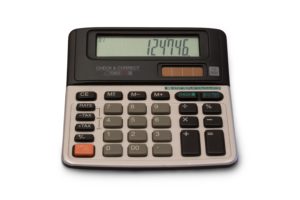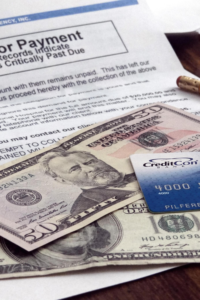Frugal Living For A Single Person
Are you single and frugal? You know, frugal living isn’t only for married people. It’s not just for parents who are trying to scratch together enough money to send their kids to college. (And of course, if a student doesn’t need to be frugal, it’s almost not a full college experience.) Nor is it a frugal lifestyle just for older people who are trying to get the most out of their retirement. Thrifty living is for everyone. You can benefit from living frugally even if you’re single or a single mom with children. Who knows? Someday, you may have college-age children. Believe me, it will expensive just to raise them to that point. Also, you have a future coming. There’s nothing to say there won’t be a few dreams you’d like to realize. That usually takes money. And time goes by faster than you think. You’ll want to prepare for retirement. Frugal living for a single person begins a financially secure future.
Now is the ideal time to develop a frugal lifestyle. Avoiding debt and saving are the two basic practices you’ll need. I’ll address these soon. First, I have two really short stories for you. Both are true, and you don’t want to find yourself in some version of either one.
Frugal living gets a bad rap because people think you are all work and no play. Nothing can be further from the truth. Frugal living will give you the ability to have a great life an adventurous life. Read my article “Is frugal living adventurous”
Couldn’t Afford to Retire
I used to work with a guy who was nearing retirement age. He’s always been single—no dependents—and always felt the money he earned was his to enjoy. That’s true, and he could certainly find any number of ways to enjoy it at the time. “At the time” are key words. He really never figured out that he would have to face the future. He never saved one dime towards retirement. After all, he was going to get Social Security. That should take care of him—right? Yeah, right—not. (To see how much he was fooling himself, read my article on the shortcomings of Social Security.) I still run into this guy once in a while. He now admits he should have planned better. (Better? He hadn’t planned at all). He’s stated more than once he’ll have to work until the day he dies. His golden years aren’t very golden.
Couldn’t Afford to Drive His New Car
A friend of mine (he’s single, too) has a nice new Lexus ES300 sitting in his driveway. Yes, it’s new, less than a year old, and he can afford the payments on it. (Although, from my point of view, nobody can really afford car payments.) What he admits is that he can’t afford is the insurance. Oh, he could when he bought it, but the company he works for has been going through a period of declining profits for a while. That’s expected to turn around eventually. Meanwhile, bonuses to management have been suspended. This guy was too reliant on his bonuses for covering everything. So, he can still make his car payments and his house payments, and… But, since he still wants to eat, he’s had to drop car insurance along with cable, yard service, and few other things. Basically, he’s maintaining his credit rating by riding the bus.
Life happens. Planning for the changes it presents is essential. A frugal lifestyle is the best way to be financially prepared.
Frugal living is frugal living whether you’re single or in a family.
Frugal Living For A Single Person
As a single person, chances are you’re not required to explain yourself or your actions to anyone. This includes your financial matters. Until now, maybe you’ve been a bit fast and free with your money, spending as you will on immediate whims. (Think about my first story above.)
Frugal living for a single person should be simple. You can do as you wish. You can be frugal and not explain to anyone why you are being frugal.
People around you might think that one day you’ll regret not making your money work for you. That can change. You’re in charge of your life. You’re in charge of your money. You don’t have to let it just flow through your fingers. You have the power to decide what it will do for you. When you are accountable only to yourself, you can develop frugal habits that prepare you financially for your immediate and long-term future. Become frugal.
You know—and this might surprise you—you may already be on a frugal track. Most responsible people are to some extent, usually short-term. If you’re putting funds aside for next month’s rent, that’s a frugal act; you’re saving money for a purpose. If you’re saving to make a down payment on your next car, that’s not only a frugal act; you’ve done some financial planning. To take frugality to the next level, you’ll need to consciously plan and save for the long term. Become more frugal.
The next frugal level more frugal involves planning, becoming debt-free, saving money, and saving for retirement. None of this has to be hard. I do these things, and if I can do them, you can. Take look at the articles I’ve linked to this paragraph. You’ll get a good idea of what frugal living looks like. After you’ve read them, I think you’ll agree having a plan is imperative.
Frugal Planning
It’s especially important to have a financial plan if you’re a single person. People in close relationships often rely on each other—and each other’s income—for the advancement of plans or help to get out of a fiscal problem. You, on the other hand, have to figure out how to cover any shortfalls. Of course, you probably do get to take full credit for your financial successes.
Where do you want to be in five years? Ten years? Twenty years? What do you want from life: education, a satisfying career, a nice place to live, a good car, vacations, a secure retirement, maybe (eventually) a family …? Of course, not all of this happens at once, and very little will happen unless you plan for it. It’s important to write out your goals and chart your progress towards them. Frugal planning is about setting goals and providing the financial means to accomplish them.
Your goals should include everything that’s important to the one person you answer to—yourself. Some of them will be short-term, many recurring. Others will be long-term. (And, I do realize what’s important to you may change over time.) Your plan can be organic, but as you live out your plan, it will be easier to reassign funds you already have than to try to work with nothing. That means a budget needs to be a fundamental part of your plan. Your budget has to make the money you earn now meet your current needs and pave the way to the future you envision. Here’s a link to a fairly comprehensive article I’ve written on budgeting. Right now, just remember that while your budget is part of a flexible plan, it’s intended to keep you moving towards your goals. That means there is heavy emphasis on saving, and saving is a lot easier if you are debt free.
Debt Free
Most frugal people consider debt to be a bad thing and here’s why: Debt confines you. The obligation to repay may not allow you to do any number of things you’d like to do, and sometimes, it interferes with accomplishing things you need to do. Consider this, if every month you have to delegate $800 ($200/weekly paycheck) to repay a loan, do you have the same amount of freedom as if you didn’t have to make that payment? Every one of us is going to answer with a resounding, “NO!” (Almost certainly, that’s a “no, duh!”)
Debt isn’t just confining, it’s deceitful. Let’s say you’re looking for a car. You have a cash price in mind, but you can’t find an acceptable one your money will cover. A car salesman shows you one you like, but the price is greater than the cash you have. The salesman suggests payments. If you take out a loan to buy this car, your monthly payments will be $XXX. You think, Well I do have more than that left after I pay my bills. I could afford to do this. Don’t fall for it. It’s a trap. What if you lose your job tomorrow? You really can’t afford that car (but you can keep looking for one you can pay for with what you have).
When you use debt, you’re leveraging your future. In the best-case scenario your buying power is restricted. In some cases, it’s very restricted. The worst-case scenario has something happening to your ability to pay. That can ruin your credit and negatively impact your life. Among other things, too much debt can keep you from getting certain jobs. Sometimes, people even lose their jobs over debt.
Incurring debt can cause your credit score to go down. Until the debt paid off, your ability to borrow money decreases (and as much as I don’t like it, there are drastic times when that might be your only option.) Even if you don’t use it, you need good credit. My article “Why do I need good credit ” explains that.
Debt cost you money. (Interest is the fee you pay to use someone else’s money. If you want to know how much financing can cost you, visit nfdm.org. It’s loan payment calculator.)
The greatest alternative to debt is putting money into savings for a purpose.
The Truth About Saving Money
Life runs on money. The habit of saving money will save your financial life.
Having money to save is a major reason to be debt free. If you don’t save, you’ll use credit, and you already know that credit increases the cost of anything. Saving money is essential to being frugal.
We have a lot of things we need to save for. Among them are some things I mentioned earlier: education, vacations, houses, and cars. Emergencies are somewhat less definable but quite possible and need to be covered. Usually, these kinds of things are long-term commitments. Short-term and/or recurring commitments could include gifts, a new suit, a new phone or computer, as well as regular expenses, like groceries or fuel. Of course, there’s some overlap. The list is endless and may change over time.
As with anything else, there are a practices or habits that can enhance either the effectiveness or ease of saving. One is to buy the best quality you can afford. Being frugal is not the same as being a cheapskate or miserly. That said, quality isn’t always reflected in price. Longevity is what you’re aiming for. If you can extend the time something is useful, it’s likely it won’t need to be replaced as often as something of lesser quality. And, you’ll save money. Of course, that means you’ll do some research and be familiar with products you purchase.
You also want to be wise in how you set money aside. Believe it or not, some so-called frugal people use an envelope system. They keep individual (labeled) stashes of cash on hand for nearly everything in their budget. This is foolish. They could lose their savings to theft or disaster. Also, easy access to a lot of money could lead to careless use.
I endorse the use of sinking funds for saving. Every payday I deposit a predetermined amount of money (budgeted, according to my financial plan) into a secure pool—an interest paying bank account. To keep track of how I’m progressing towards various goals (purchases and events) I keep a ledger. (Use the link I’ve given you in this paragraph to see my method.) One additional benefit to saving this way is that given what seems to be an urgent need, I can’t just grab a cash envelop and “throw money at it”. I get to see on paper what the impact of an unplanned withdrawal will be. It’s a safeguard against indiscriminate use.
Saving money prepares you financially for both the expected and unexpected issues and opportunities that come with living. When you have the financial aspect of an event covered, it may be easier to handle any other angles to the matter, such as timing or emotional involvement.
As I pointed out in the section on Frugal Planning, if you’re single, your success in preparing for any goal or financial event is dependent on you. The object is to be prepared for any of these things before they become immanent or urgent. Timelines for many goals might slide. For example, I bought new tires for my car about 8 months ago. When I bought the set, I figured I’d have about 48 months to save for the next one. I started saving for them from the paycheck I received immediately following the purchase. As of now, I’ve been putting money into my sinking fund for tires at a set rate for about 8 months. There’re still many months to continue saving for the tires before the money will be needed. That given, there’s no 100% guarantee I’ll actually have to replace my tires when the 48th month arrives, but the money will be there when it’s needed. On the other hand, there’s no guarantee that long before the anticipated time for replacement, I won’t drive through a construction zone and blow two tires at once on stray bolts or something else in the road. (Actually, this isn’t hypothetical. It happened to me. I’m sure you’ve had something just as aggravating and upsetting happen at least once in your life.) At that point, I didn’t have the money to replace both those tires in my Tire Replacement sinking fund (and they did have to be replaced, plugging them was out of the question.) But, with my sinking funds pooled and by looking at the ledger to see how other goals would be affected, it was simple to figure out how to compensate: The ruined tires were replaced, and saving schedules and deposit amounts adjusted.
Note: If I hadn’t had my sinking funds, I might have had a car sitting in my driveway until I could scrape together the money to replace those tires. (Think about the second short story above.) Or, if I was entirely ignorant of frugal principles, I might have purchased them with credit. If I’d done that, and any other financial challenges had occurred, who knows what kind of mess I’d be in.
Life happens. Changes, and accommodations have to be part of every lifestyle, including a frugal one. In the event of real need, saving schedules and the amounts you deposit in any sinking fund can be adjusted. Except one—your Retirement Account.
Save for Retirement: Ready or Not, It’s Coming
Did you notice I just make a quick change from talking about Sinking Funds in general to a specific account?
For all practical purposes, your Retirement Account is another sinking fund, but it’s so important to your future that the money you dedicate to it needs to be kept separate from other funds. Years go by faster than we imagine. When you’re ready to retire, your savings need to be ready to support you.
Retirement Accounts usually receive substantial contributions. But, too often, because the money you dedicate to your retirement seems to serve a distant future, this account could become the “go to” for solving every financial problem that comes your way. For the same reason, it’s tempting to neglect quick restoration if you borrow from it.
Don’t treat your Retirement Account like a mine, and don’t mingle the money in it with the pool that holds your other funds. Build an account solely for your retirement. Saving money beforehand is an absolute must. Put it in a 401(k), or other dedicated account. Above all, consider the money in your Retirement Account the very last you would use for anything else.
Remember the story from early in this post about my co-worker? He worked all his life and didn’t saved a penny towards retirement. Social security doesn’t pay enough for him to live on. Also, he isn’t in great health. Even though he’s still working full time, he’s fairly sure he’ll have to cut back on hours soon. That will considerably reduce his income potential. Now, he’s wondering how he’s going to manage to get through his next decade or so of life. No one wants to find himself in that position. Again, I have to stress that the responsibility for financial preparedness is greater for a single person than for those who have access to mutually contributed assets.
Conclusion
Frugal living for a single person is very much the same as it is for a couple or a family. You have to maintain the same the basic habits: financial planning, becoming and remaining debt free, saving money, and preparing for retirement. The greatest difference is that as a single person, you are solely responsible for your success.
Take the time to set your foundation. Make goals and develop a plan of action. Live by your plan (your budget} and track your progress. Remaining debt free a will maximize your effort to save and prepare for your future. Remember life will present a number of challenges and opportunities. It’s important to be ready to meet them.







